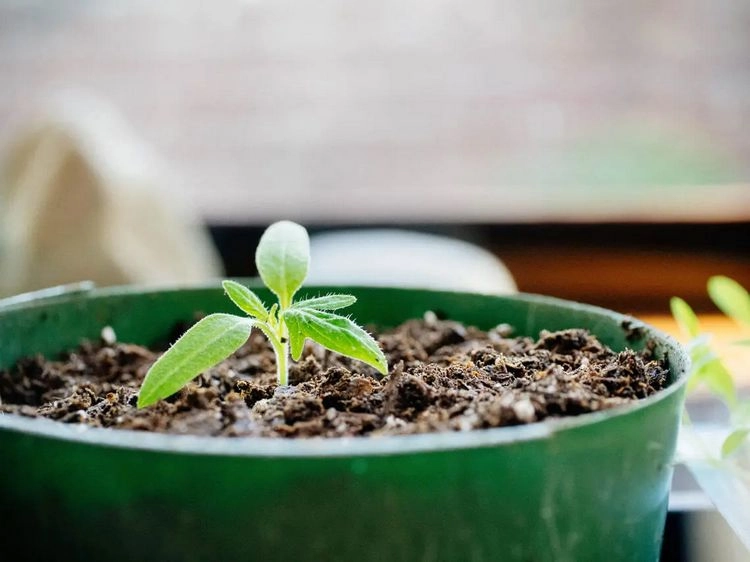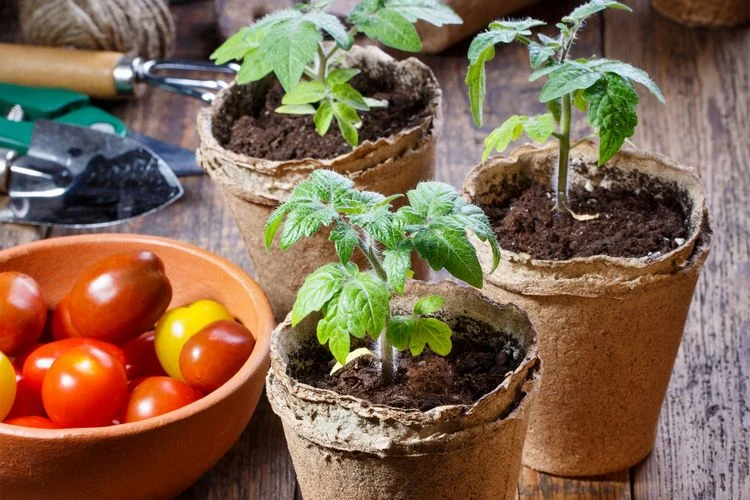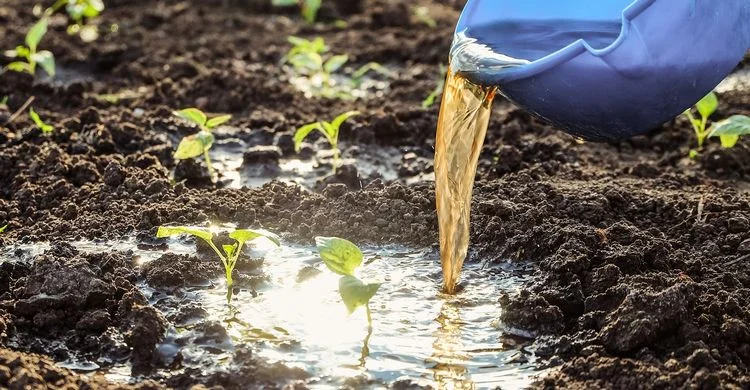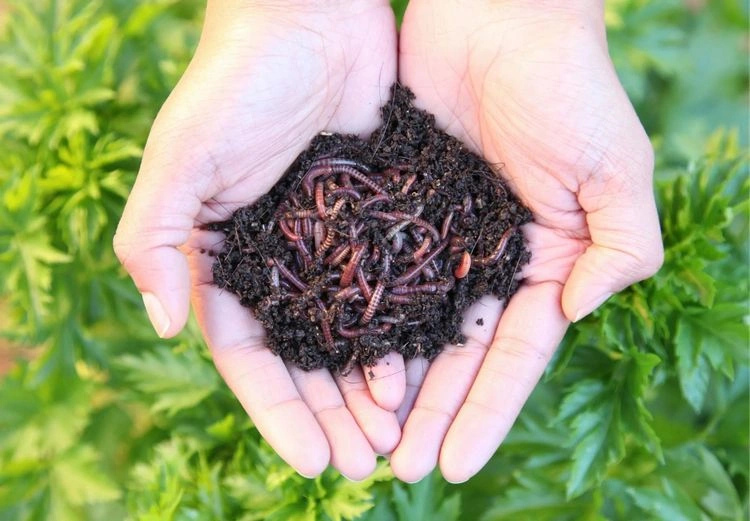Tomatoes thrive when given an abundance of nutrients during the growing season. Chemical or organic fertilizers can provide the soil with the nutrients your tomato plants need. Then the answer to the question – “Should you fertilize young tomato plants?” – is definitely yes! Fertilizing young tomato plants is one of the best ways to kickstart their growth early in the growing season. Read on for useful tips for a bountiful harvest.
When should you fertilize your young tomato plants?
We know tomatoes are heavy feeders, but if you don’t need to feed them initially, when should you start? Your tomatoes can’t use the nutrients in the soil until they form “real” leaves and start photosynthesizing. If you’ve ever planted seeds, you know that moment when the first leaves appear. These leaves tend to be rounder than the other leaves on the plant. The cotyledons provide the plant with the energy it needs to get out of the ground and form the first real leaves. Fertilize the seedling when it is between 5 and 10 cm tall and the first true leaves are fully established.
Even fertilizers that are not meant to burn the plants can damage the seedlings because they are so young. Don’t risk damaging your tomato plant’s young roots by fertilizing too early. Do not use fertilizer when planting seeds.
The best fertilizers for young plants of tomatoes

For seedlings of all kinds, not just tomatoes, it is better to use a semi-strong fertilizer. The young root systems are particularly susceptible to fertilizer burn. The lack of rainfall and the proximity of plants to each other can easily accumulate salts in the soil and cause root burns.
NPK liquid fertilizer for young tomato plants

Liquid fertilizers are preferable when caring for seedlings. They are less of a hassle to mix and use than powders. Diluting your liquid fertilizer will give your plants all the nutrients they need without over-feeding.
Plants need nitrogen, phosphorus and potassium as their main macronutrients. A fertilizer that has a balanced ratio of nitrogen, phosphorus and potassium is best. Phosphorus should be a priority if any of these elements are to be increased in quantity. At this point, phosphorus is crucial for healthy root growth. The three-digit NPK ratio is often used when talking about fertilizers, or is stated on the packaging itself. The N stands for Nitrogenium—nitrogen in Latin.
- Phosphorus is essential for both root system development and fruit development. This makes it an important nutrient both at the beginning and at the end.
- Nitrogen nourishes the plant’s foliage, but excess nitrogen results in bushy growth and little or no fruit.
- Potassium promotes rapid growth and development of flowers and fruits in plants. But it’s also important for things like photosynthesis and resistance to certain diseases.
Despite the claims made for tomatoes, not all growth stages benefit from plant nutrition. At this stage of growth, harmony is ideal. It is better to water young plants from below so as not to damage their delicate foliage. Only half of the recommended amount of fertilizer should be diluted with water and poured into the nursery tray.
Fertilize young tomato plants with compost tea

Compost tea is the solution when you want a homemade, all-natural method. This natural fertilizer allows young tomato plants to get the nutrients they need. The nutrient content is so low that the plants are not overwhelmed and the nutrients can be quickly absorbed by the roots and leaves of the plant. You can either make your own compost tea or buy it.
You should start with good quality compost if you want to make a truly potent compost tea. You only need a few components to make compost tea: compost, clean water, a mesh bag, and a container.
Ingredients:
- 4 l chlorine-free water
- 300 g finished compost
Directions:
- Place the finished compost in a mesh bag.
- Place the mesh bag in the bucket.
- Fill the bucket with chlorine-free water.
- Store the bucket in a cold and dark place.
- Stir the mixture thoroughly every day for a week.
Worm tea is also a good fertilizer

Worm tea, which is prepared by soaking worm droppings in water, is also an excellent choice. The organic worm and compost teas can be applied weekly at 100% strength without harming the plants. Both have low power.
How often to fertilize young tomato plants
Fertilize the seedlings once a week until they are large enough to be planted in separate pots or in the garden.